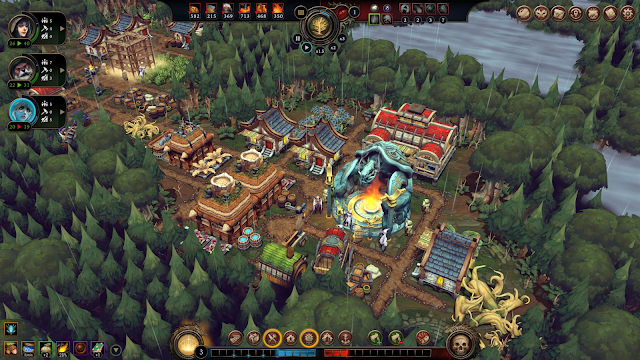In keeping with a tradition I've done for
GDC 2012 and
GDC 2015, I like to try to condense general moods and topics at GDC. What happened there?...
Post-indiepocalyptic. In past years, I've remarked on the tension between AAA developers vs commercial indie devs vs non-commercial "artists" -- that tension isn't gone, but it's certainly not as big of an issue anymore. Everything everywhere is kind of terrible for everyone. So many people are making so little money that it's hard to distinguish their precarity from another precarity. Besides, a massive political shift is now underway in the form of...
Unionization. I was one of maybe 150 people who attended
the unionization roundtable session. My live
tweet thread is here if you want my version of what happened. Throughout GDC I heard so many stories that made me realize working conditions are worse than I imagined, and there's a shocking sense of resignation when I spoke to one AAA dev who predicted they were going to burnout with their next 100 hour workweek / 6 month crunch, like it was just this inevitable natural disaster that was definitely going to happen... As someone who trains students in game development, I guess I'm extremely concerned about throwing my students into this giant machine that will mercilessly devour them! (For what it's worth, the IGDA moderator
Jen MacLean seems to have walked-back some of her anti-worker positions as a result of the roundtable.)
Generations. I don't know how a lot of other "established" indies feel, but this year when I went to a party or looked out into a crowd, I didn't recognize as many faces as I thought I would. Maybe this is just what happens in every industry, as more people burnout or find something better or
in some cases even die. I spent a good amount of my GDC trying to meet new people, and that was utterly exhausting, but I'm still glad I made the effort, because this year felt...
Gayer? I met so many queer and trans people at GDC this year. And one night when I asked someone whether they were going to "the gay party", they asked me to clarify my question: "which gay party?" (!)... As always, I'm reluctant to praise diversity efforts because that implies
diversity has been achieved and no more work is needed, but I did feel like there were generally more LGBTQ people everywhere at GDC, or at least more than before, and it was kind of nice.
Overall. Everyone was tired, but there was a sense that maybe it was worth staying.

















